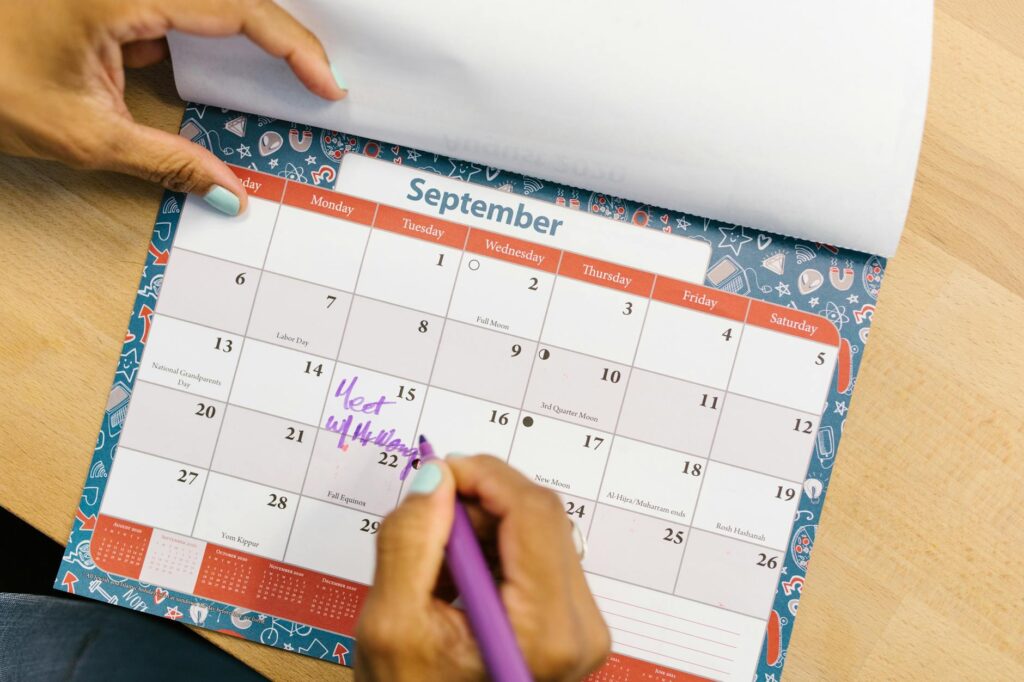What is effective use of calendars?

What is effective use of calendars?
Calendars are not just a collection of dates and deadlines; they’re essential tools that can transform how we manage time and tasks. Whether used in personal or professional settings, effective use of calendars enhances productivity, optimizes time management, and simplifies life organization. By mastering the art of calendar usage, you can significantly improve your daily routines and overall efficiency.
Understanding Different Types of Calendars
There are various calendars available today, from traditional paper planners to advanced digital systems. Each type has its own strengths and weaknesses, catering to different needs and preferences.
Paper Calendars vs. Digital Calendars
Paper calendars offer a tactile experience. Many people find writing things down helps with memory retention. However, they can lack the flexibility of digital solutions. On the other hand, digital calendars provide numerous features like reminders, sharing capabilities, and easy access from multiple devices. Yet, they can sometimes feel impersonal or overwhelming with too many notifications.
For those who appreciate the feel of paper but want the benefits of technology, hybrid options bridge the gap. These allow users to write things down while also integrating digital features. This combination might be the best of both worlds for some.
Online Calendar Tools
Online calendar tools have gained immense popularity due to their accessibility and advanced features. Tools like Google Calendar, Outlook, and Apple Calendar offer functionalities such as event sharing, automated reminders, and the ability to sync with other applications. These features help streamline scheduling and ensure you never miss an important appointment.

Photo by RDNE Stock project
Setting Up Your Calendar for Success
To harness the power of your calendar, it’s critical to set it up effectively. Here are some strategies to get started.
Creating Time Blocks
Time blocking is a technique that allows you to allocate specific periods for tasks. By dedicating uninterrupted time for focused work, you can minimize distractions and boost productivity. Start by identifying your most significant tasks and assigning them designated times during your week. This method not only helps in completing tasks but also ensures you have time for breaks and personal activities.
Color-Coding Events and Tasks
Color-coding is a simple yet effective way to categorize different aspects of your life. Assign specific colors to various types of events—work, personal, appointments, etc. This visual representation allows you to quickly identify what your day looks like at a glance, making it easier to prioritize and manage your time.
Integrating Calendars in Daily Life
Incorporating calendar usage into your daily routine can significantly improve your organization and focus.
Daily and Weekly Reviews
Implementing daily and weekly reviews can create a structured approach to managing your time. Spend a few minutes each day reviewing what needs to be accomplished, and dedicate time each week to plan for the upcoming days. This practice helps you stay on track with goals and responsibilities, ensuring that nothing falls through the cracks.
Setting Reminders and Alerts
Don’t underestimate the power of reminders. Set alerts for important events, deadlines, or even routine tasks. This feature can prevent you from overlooking essential activities and creates a safety net for your daily schedule. By ensuring you’re reminded ahead of time, you can prepare adequately and avoid last-minute rushes.
Common Pitfalls in Calendar Usage and How to Avoid Them
Despite the benefits, many people make common mistakes when using calendars. Here’s how to steer clear of these pitfalls.
Overloading Your Calendar
One of the most detrimental habits is overloading your calendar with too many tasks. This can lead to stress and burnout. To avoid this, prioritize tasks based on urgency and importance. Be realistic about what you can achieve in a day, and don’t hesitate to move less critical tasks to another day.
Neglecting Regular Updates
Another common error is failing to regularly update your calendar. Life can be unpredictable, and schedules change. Make it a habit to review and adjust your calendar frequently to reflect new commitments and priorities. This practice will keep your calendar relevant and useful.
Conclusion: Maximizing the Effective Use of Calendars
An effective calendar system is more than just a tool—it’s a cornerstone of productivity and organization. By understanding the different types of calendars, setting them up thoughtfully, and integrating them into your daily life, you can reap the benefits of better time management and a more balanced lifestyle. Remember to avoid common pitfalls and regularly update your calendar to stay on top of your commitments. Embracing the effective use of calendars can lead to a more organized, productive, and fulfilling life.